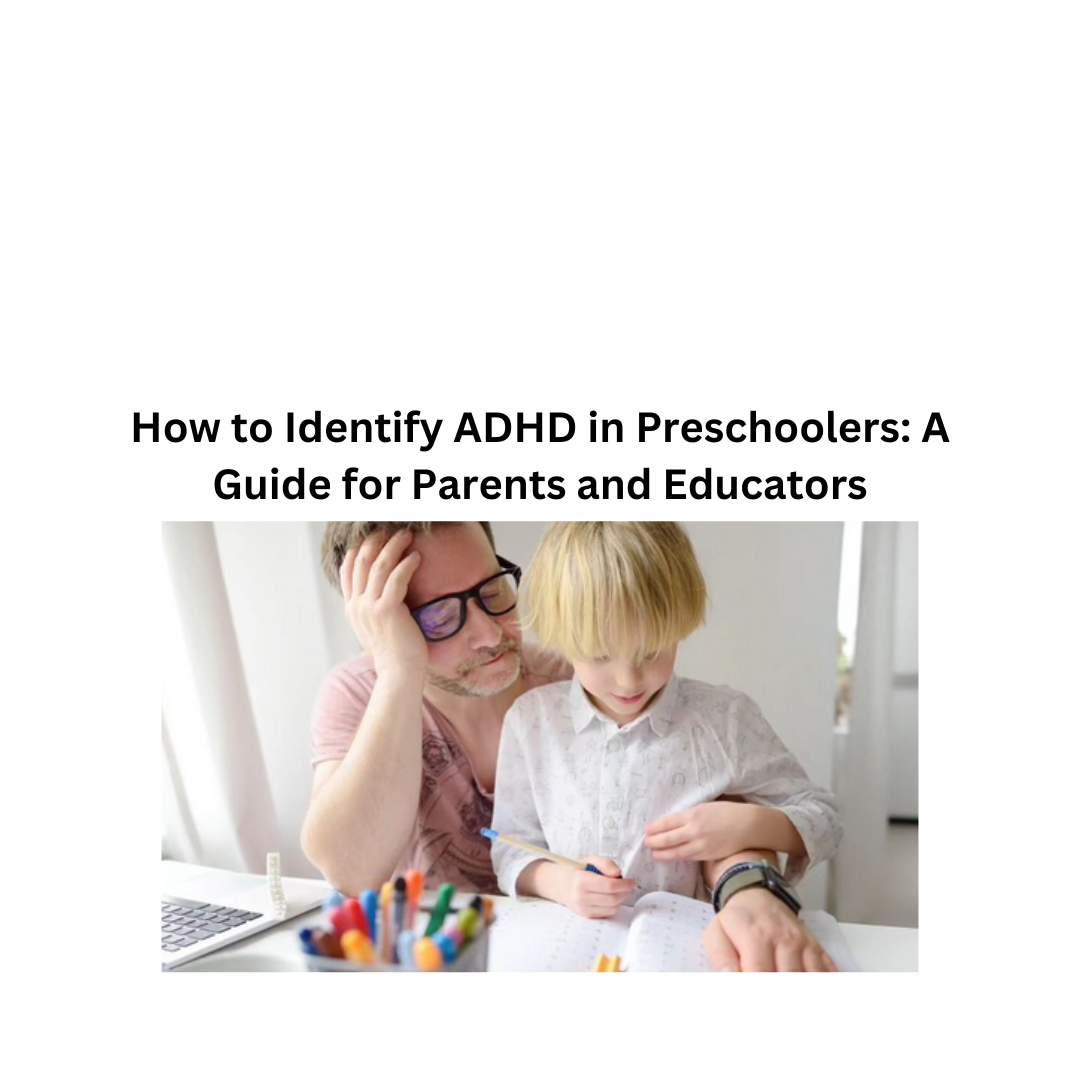
How to Identify ADHD in Preschoolers: A Guide for Parents and Educators
Introduction: The Importance of Early ADHD Detection
As a preschool special education teacher, I have seen firsthand how early detection of ADHD (Attention-Deficit/Hyperactivity Disorder) can significantly impact a child's success in school and daily life. Many parents and educators assume that preschoolers are naturally energetic and inattentive, but persistent, extreme behaviors can be a sign of ADHD. Recognizing the signs early and seeking professional help can lead to timely interventions, reducing frustration for both children and caregivers.
In this guide, we'll explore how to recognize ADHD in preschoolers, why early detection matters, who to consult for diagnosis and support, and helpful products that can aid caregivers in managing ADHD symptoms.
What is ADHD?
ADHD is a neurodevelopmental disorder that affects a child's ability to focus, control impulses, and regulate energy levels. It is typically diagnosed in childhood and can continue into adolescence and adulthood. While symptoms can vary from mild to severe, early identification and intervention are key to helping children develop coping strategies and thrive in a structured environment.
Signs of ADHD in Preschoolers
ADHD symptoms often become noticeable between ages 3 to 5, though diagnosis in this age range can be tricky. Many preschoolers are naturally energetic, impulsive, and distracted, so distinguishing normal development from ADHD requires careful observation over time.
Here are some common signs that may indicate ADHD in preschool-aged children:
1. Inattention
-
Difficulty focusing on one activity for more than a few minutes
-
Easily distracted by noises, movement, or visual stimuli
-
Frequently loses interest in tasks before completing them
-
Struggles to follow simple instructions or multi-step directions
2. Hyperactivity
-
Constantly moving, even in situations where it’s inappropriate
-
Climbing on furniture, running, or engaging in risky behavior
-
Excessive talking, even when asked to be quiet
-
Difficulty sitting still during circle time, meals, or storytime
3. Impulsivity
-
Frequently interrupts conversations or activities
-
Has trouble waiting for their turn in games or group activities
-
Acts without thinking about consequences (e.g., running into the street)
-
Emotional outbursts or difficulty regulating emotions
4. Sleep Difficulties
-
Struggles to fall asleep or stay asleep
-
Appears tired during the day due to restless sleep
-
Frequently wakes up during the night
5. Social Challenges
-
Has difficulty making or keeping friends
-
Struggles with sharing and turn-taking
-
Becomes easily frustrated and may lash out physically or verbally
Why Early ADHD Detection is Critical
Early identification of ADHD can make a huge difference in a child’s development. Here’s why:
✔️ Early Intervention Improves Learning – Preschoolers with ADHD benefit from structured learning environments that help them build focus and self-control.
✔️ Behavioral Strategies Can Be Introduced Sooner – Children who receive behavioral therapy early are more likely to develop healthy emotional regulation skills.
✔️ Reduces Social Struggles – Early detection helps children learn social skills that will help them navigate friendships and group settings.
✔️ Provides Parents with Tools and Resources – Caregivers can receive professional guidance, making daily life at home less stressful.
✔️ Avoids Mislabeling or Punishment – Without early recognition, children with ADHD might be mistaken for being "badly behaved" rather than needing extra support.
Who Can Diagnose ADHD in Preschoolers?
If you suspect a preschooler may have ADHD, consult a professional for a thorough evaluation.
👩⚕️ Pediatricians – Often the first step. They can conduct initial screenings and refer specialists if needed.
🧠 Child Psychologists or Psychiatrists – Conduct in-depth behavioral assessments and provide ADHD diagnoses.
🏫 Developmental Pediatricians – Specialize in neurodevelopmental disorders and offer tailored interventions.
🗣️ Speech and Occupational Therapists – Help with ADHD-related challenges such as impulsivity, sensory sensitivities, and social interactions.
👩🏫 School Psychologists or Special Education Teams – If your child is in preschool, speak to the school’s support staff for observations and recommendations.
Helpful Products for Parents and Educators
Here are some Amazon-recommended products that can help caregivers manage ADHD in young children:
1. Visual Timers – Time Management Tool
🔹 Product: Time Timer MOD – 60-Minute Visual Timer 🔹 Why It’s Helpful: Helps children with ADHD understand time limits and transitions. The disappearing red disk provides a visual cue to show how much time is left for a task.
2. Sensory Seat Cushions – Improve Focus
🔹 Product: Wiggle Seat Sensory Cushion 🔹 Why It’s Helpful: Allows kids who struggle with sitting still to move slightly while seated, improving focus and reducing fidgeting.
3. Noise-Canceling Headphones – Reduce Distractions
🔹 Product: Banz Kids Noise Canceling Headphones 🔹 Why It’s Helpful: Helps children with ADHD stay calm by reducing background noise, making it easier to focus.
4. Fidget Toys – Encourage Calm and Focus
🔹 Product: Fidget Cube for Kids with ADHD 🔹 Why It’s Helpful: Small, quiet fidget toys can help kids with impulse control and attention issues in the classroom or at home.
5. Weighted Blankets – Improve Sleep and Calmness
🔹 Product: YnM Kids Weighted Blanket 🔹 Why It’s Helpful: Provides deep pressure stimulation that can help kids with ADHD feel calmer and sleep better.
Final Thoughts: Supporting a Child with ADHD
If you suspect a preschooler has ADHD, trust your instincts and seek professional advice. Early support can help children develop essential coping skills, making both home and school life easier. Remember, ADHD is not a bad behavior issue—it's a neurological condition that requires patience, structure, and encouragement.
By recognizing symptoms early, getting a professional diagnosis, and using helpful tools, parents and educators can set a child up for success.
🛒 Browse helpful ADHD-friendly products on Amazon.
📚 Learn more about ADHD in young children from trusted sources like the CDC and CHADD (Children and Adults with Attention-Deficit/Hyperactivity Disorder).

